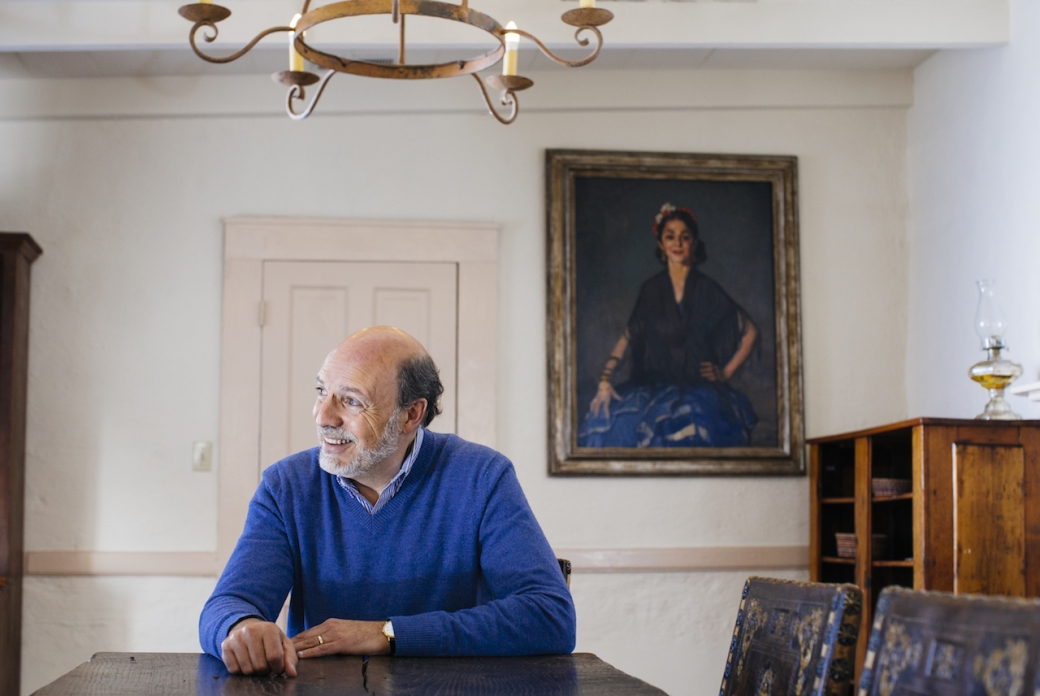A Conversation with William Arrocha

Professor William Arrocha has been teaching courses on international development, migration, and human rights at the Institute since 2008. This spring we talked with him about the impact the immigration policy debate in the United States is having at multiple levels—on the campus, the region, the nation, and the world.
Q. How has the increased focus on immigration policy that began during the presidential campaign affected the conversations happening in your classroom?
A. We are an institution with a large international body of students, and today we are living in a climate of open hostility from the executive branch of the federal government toward certain immigrants, particularly non-European immigrants. It is therefore difficult to avoid such conversations on campus and in the classroom. There is definitely an increase in fear; it permeates the discussions in class and also the work that faculty and students do with the community at large.
Q. You’ve done a great deal of work in the Monterey area on issues related to immigration. How has that regional conversation changed over the past two years?
A. There is fear among the at-large community in this county that is targeted by today’s openly anti-immigrant policies. You have students in the community who have been protected under the DACA (Deferred Action for Childhood Arrivals) program who are now living in limbo. Their future depends on the actions of a very divided Congress and an executive who are using them as a political chip. For individuals who did not choose to come to this country the way they came, and yet have lived here most of their lives, this is devastating.
Then you have workers in the agricultural sector who are also in limbo. Those who have working permits don’t know if they will be renewed, while those who don’t, fear an increase in harsh and often-violent raids. We also have many citizens from El Salvador in this area who have been living under Temporary Protected Status, which has now been cancelled. All of this obviously has an impact on the collective well-being of this county.
There is fear among the at-large community in this country that is targeted by today’s openly anti-immigrant policies.
Q. How do you see the current national conversation on immigration affecting other countries’ perceptions of the U.S.?
A. There is a generalized shock among many leaders and people to hear such divisive, nativist discourse coming from the U.S. government. For some it was hard to even imagine that someone who called immigrants from Mexico rapists and murderers could become president. Historically, the immigration debate has been about how best to include migrants. Today, it is about who to exclude, and how.
Q. What economic, social, and political factors do you think are driving these developments?
A. There is a perception that wages go down due to immigration, and that certain immigrants represent a threat to the public safety or the national security based on their religious beliefs or countries of origin. Most immigrants just want a better life, and studies by the Pew Research Center have shown that the more immigrants there are in a community, the less crime—because an immigrant wants to be embraced as part of the community. In times of economic uncertainty, there is a tendency to scapegoat immigrants, yet people forget that in the U.S. there is a structural dependency on migrant labor.
Q. What are the basic foundations of a sound, responsible, morally defensible immigration policy?
A. First, it’s one that accepts the fact that human beings are always looking to move from one place to another. Migration is a natural phenomenon that should be regulated with the utmost respect for those who choose for whatever reason to leave their home and country to go and forge a new future. The most responsible immigration policies are based on respecting the most fundamental human rights and dignity of migrants. In the United States, we’ve always needed immigrants to be the country that we are.
For More Information
Jason Warburg
jwarburg@middlebury.edu
831-647-3516
Eva Gudbergsdottir
evag@middlebury.edu
831-647-6606
